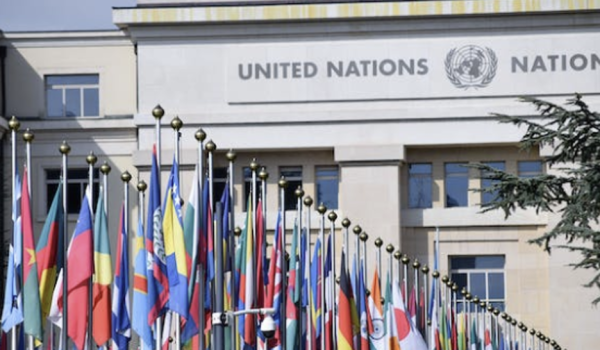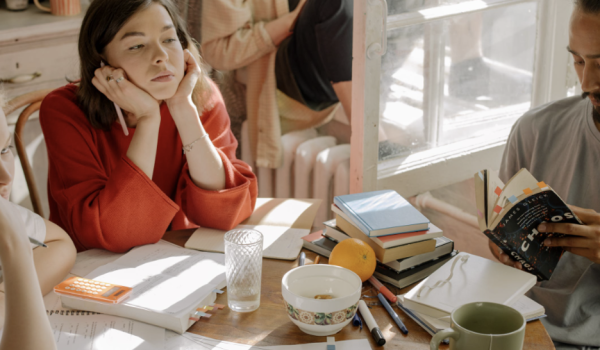Head of Youth Time Moscow office speaks about Rhodes Youth Forum 2015 insights. When considering the programme for the next session of the Rhodes Youth Forum, we put to ourselves the question: What worries the younger generation most of all today? Day after day our Facebook feed displays what young people from completely different corners of the world think is most important or troubling. To sum up, almost all of them seeks peace and tranquillity but at the same time finds themselves in quite stressed or confused.
Some friends, from Europe especially, are troubled by political issues and the recent deterioration of world developments. They are worried by the fact that various societies are rejecting the ideas of freedom, of human rights, and democratic ideals or those of some other ideology. But I believe that’s not what the main challenge now is.
Every society throughout its history has swung like a pendulum in its attitude towards one system of ideas or another, sometimes swinging towards it, sometimes swinging away. This natural process could represent not the threat but the reflection of deep changes in the world. In the example of liberalism and democracy, it is typically countries advocating these slogans all around the world that actively participate in this to-ing and fro-ing, i.e. The US and other Western countries. If the Americans themselves after the tragic events of 9/11 were able to pass the USA PATRIOT Act – an unprecedented move that limited the rights and freedoms of its citizens, a string of ideals it held sacred – then they had their own valid reasons for it.
Likewise other events we observe today could be not the cause but the effect of tectonic societal changes. So the customary ideas and words will resound for a long time to come, but the relationship with them will become extremely utilitarian, and they will be applied when and how they are required. Ideological constructs having been exhausted of their content, are being stripped of their energy and now remain as scenery for the “society of the spectacle”. Real history and real politics, in the true meanings of the words, will be played out in various places as a professionalised sphere of conflict over fundamental ideas about the general organisation of life. The younger generation will actively seek areas which tomorrow will seethe with life.
In our meetings we’ve spoken more than once about how humanity has been confronted not so much with an economic crisis, but with a layering of several diverse crises possessing a much deeper character. And it’s specifically a “crisis of the personality” and a crisis of the very foundations of human life. Current societies are not actually aware of its true scale. What’s more, the media often hide or distort its true essence. But we can hardly be content with this. Crises open up new possibilities for qualitative changes. The deeper the crisis, the broader the horizons of opportunity. The most harmful thought now would be that the world is discovered and finite. But the realisation that not all the amazing people have been met yet, not all the momentous events have occurred, and that the world awaits a future containing many interesting things to be discovered, will sooner or later allow those possibilities to emerge.
The Main Challenge and Variants of the Answer
The main challenge, I believe, consists in the formulation of new viable “models” and concepts of the organisation of the world. Its difficulty is in the fact that it needs to be executed carefully, but jointly with others and without hesitation. Since the world has become unstable, we need to proceed right now.
We identify three basic scenarios of how the situation will develop. The first – the permanent crisis – is the state which we are observing. It doesn’t mean that everything is bad and every day there’s shocking trouble, but nevertheless, it is a world that has slipped into a tangle of various layers of crisis. Institutions can plug some leaks in the dam to the detriment of others, but the whole construction is all the same rotten. Those leaks are war, terrorism, upheaval, catastrophes, and many other things. The aggravation of economic and social problems, including those in developed countries. Huge resources are being spent on the elimination of their effects, but the leaks will appear here and there again and again. And they will continue to do so unless the world takes a new course or ends its existence as it is in its current state. The second, the worst case scenario – the threat of apocalypse in the form of a nuclear world war or another type of catastrophe – also can’t be neglected. The third variant envisions the realisation of new paradigms of world order. Perhaps it’s the most complicated as no one has a concrete image of it. Neither the ruling elites nor the intellectuals, nor even the wisdom of the ages has an answer to the questions of how to go on and what to do with the world. The paradox is that these new paradigms don’t come in advance but are cultivated in the process. This scenario is the most interesting but it demands the answers to a string of important questions. The younger generation should be included in the search for those answers.
One of them consists in the development of our natural skills in dialogue. Our experience at Rhodes and in other places shows that people today through discussion of one or another complex problem recognise the need for open dialogue. Necessary is to learn to collaborate, to practise creativity, imagination, understanding and thinking, and to develop in every way our innate skills to live together. And spirituality will play an all more important role here. First of all, world religions bring practices of human coexistence and the duration of many ages has proved their viability. They have already allowed us to survive difficult times. Humanity not only remembers this but also makes it sacred because if it didn’t, it would perish. Secondly, spirituality manifests itself at the threshold of new situations. Different societies are now experiencing them. We find this in the example of the crisis of the traditional family and of education, and in the processes of the disintegration of society. It’s not just coincidence that interest in spirituality is growing, as well as amongst those who don’t consider themselves religious.
In contemporary education the three C approach – communication, creativity, collaboration – has become popular. In the 21st century, why have creativity, collaboration and communication specifically come to the fore? It’s linked to the fact that the mechanism today for the realisation of the third scenario is something different. Social experiments, in which over the course of the previous century they attempted by means of design to change the world and society, failed. No matter how much they tried to fully establish Fascism, Communism or whatever else, sooner or later it collapsed at the moment when people decided they simply didn’t want to live that way. However, there are separate instances every now and then of people reinstating them in one form or another and living with them. Instead of putting the ideas as slogans on flags and carrying them desperately to other lands, they took them and instilled them in their own countries. They did what they could and make the most of it, improving them as needed. If they work well they keep them. For example, Communism as a whole failed but some of its elements, such as collaborative consumption, or planned economy, have been introduced more or less successfully in various countries, including the economically developed. Thus, the second answer consists in the formulation of new approaches to societal shifts. Although they aren’t that bad for some contemporary societies that have been vaccinated against manipulation, the “society of the spectacle” continues. Defence against them lies in being attuned to one’s intellectual thoughts and in training one’s natural instincts, where the pulse of life truly beats.
The third question is linked to the myth of the Tower of Babel. The language barrier has today been overcome, including by technological means. I’m not, however, talking about a language such as English, Chinese or Russian, but about a certain intellectual language. Diversity should be preserved but the future is clearly in collectives able to speak in common values or languages of the mind.
The Rhodes Youth Forum is here to help train you in what is most essential in the contemporary world. This is perhaps its main role in human society of today. The Forum aims to give young people the opportunity to experience a state energetic solidarity. Everything else – career, success, fame and authority – you talented people can receive yourselves elsewhere. I hope you too will keep up our initiative and take part in our Forum, whose aim is to help strengthen peace, trust and a love of life amongst the youth of different countries of the world, and also to synchronise the efforts of various societies in the realisation of positive scenarios for the future.
Support us!
All your donations will be used to pay the magazine’s journalists and to support the ongoing costs of maintaining the site.
Share this post
Interested in co-operating with us?
We are open to co-operation from writers and businesses alike. You can reach us on our email at [email protected]/[email protected] and we will get back to you as quick as we can.









